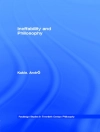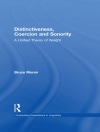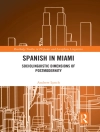Metacognition refers to our awareness of our own mental processes, such as perceiving, remembering, learning, and problem solving. It is a fascinating area of research for psychologists, neuroscientists, anthropologists, sociologists and philosophers. This book explores the variability of metacognitive skills across cultures, since a person’s decision to allocate effort, motivation to learn, sense of being right or wrong in perceptions, memories, and other cognitive tasks depends on specific transmitted goals, norms, and values. Across nineteen chapters, a group of leading authors analyze the variable and universal features associated with these dimensions, drawing on cutting-edge evidence. Additionally, new domains of metacognitive variability are considered in this volume, including those generated by metacognition-oriented embodied practices (present in rituals and religious worship), and culture-specific lay theories about subjective uncertainty and knowledge regarding natural or supernatural entities. It also documents universal metacognitive features, such as children’s earlier sensitivity to their own ignorance than to that of others, people’s intuitive understanding ofwhat counts as knowledge, and speakers’ sensitivity to informational sources (independently of the way the information is linguistically expressed). The book is important reading for students and scholars in cognitive and cultural psychology, anthopology, developmental and social psychology, linguistics, and philosophy.
Martin Fortier & Joelle Proust
Metacognitive Diversity [PDF ebook]
An Interdisciplinary Approach
Metacognitive Diversity [PDF ebook]
An Interdisciplinary Approach
Beli ebook ini dan dapatkan 1 lagi PERCUMA!
Bahasa Inggeris ● Format PDF ● Halaman-halaman 448 ● ISBN 9780192506887 ● Penyunting Martin Fortier & Joelle Proust ● Penerbit OUP Oxford ● Diterbitkan 2018 ● Muat turun 3 kali ● Mata wang EUR ● ID 7357924 ● Salin perlindungan Adobe DRM
Memerlukan pembaca ebook yang mampu DRM












